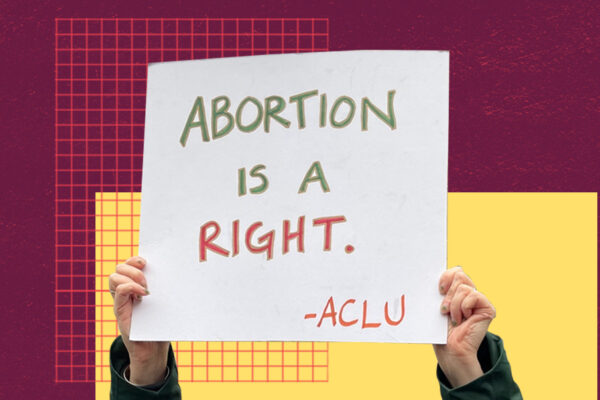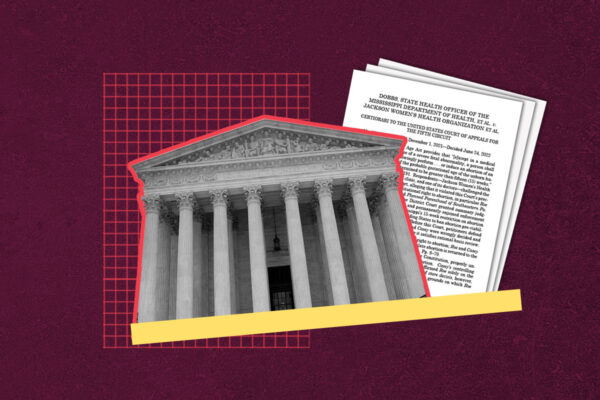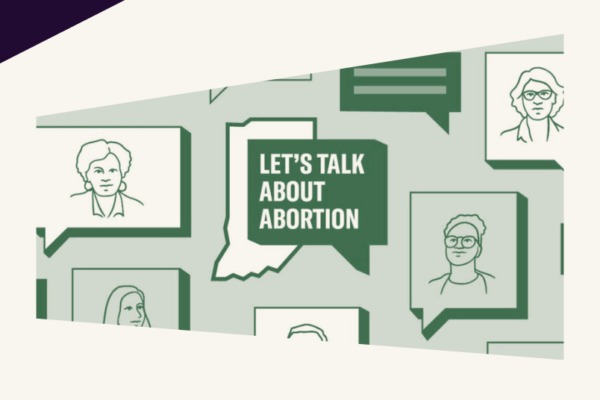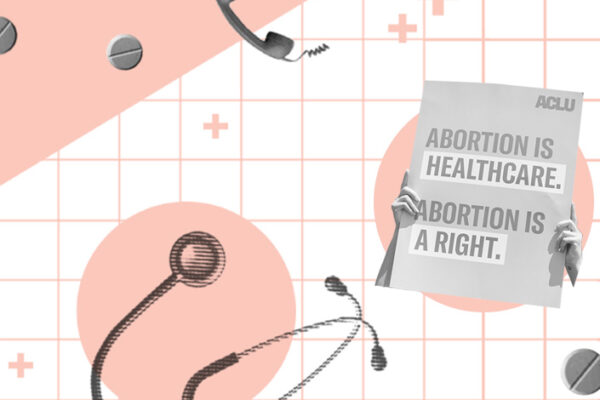Indiana recently made history, becoming the first state in the country to pass an abortion ban since the overturn of Roe v. Wade. Indiana legislators rushed to pass Senate Bill 1, banning virtually all abortions and forcing Hoosiers to carry pregnancies against their will.
SB 1 inflicts immediate and irreparable harm on Hoosiers seeking vital healthcare. That’s why we’ve filed two lawsuits in state court in recent weeks challenging the abortion ban.
On August 30, we filed a lawsuit alongside our partners to stop the ban from taking effect. The lawsuit argues SB 1 violates both the Indiana Constitution’s right to privacy and equal privileges protections. From its very inception, the Indiana Constitution has protected the right to privacy. Implicit in this right, is the right for a woman to make medical decisions regarding her own reproductive health.
On September 8, we filed suit to stop SB 1 on the grounds that it violates Indiana’s Religious Freedom Restoration Act (RFRA). Our class action lawsuit was filed on behalf of Hoosier Jews for Choice, and five women who, like many Hoosiers, have sincere religious beliefs that they must be able to obtain an abortion under circumstances prohibited by Indiana’s abortion ban. Our plaintiffs are at risk of needing an abortion in the future that are allowed by their religious beliefs.
RFRA, a controversial law passed by the Indiana legislature and signed into law by Governor Mike Pence in 2015, prohibits government action that interferes with a person’s religious exercise, unless the government can prove it has a compelling reason for doing so.
At the time of its passage, Indiana’s RFRA was rightly blasted as a law to allow anyone to use their religious beliefs to discriminate against LGBTQ Hoosiers, and sparked fierce backlash.
When RFRA was being debated in the legislature, the ACLU of Indiana stood against the use of religion as a means of discrimination, and we helped the legislature pass a “fix” to ensure that RFRA could not be used to discriminate against LGBTQ Hoosiers. The “fixed” version of the law is in place today, and SB 1 is a violation of RFRA.
The plaintiffs on our lawsuit represent a wide variety of faiths including, Judaism, Islam, and independent spiritual belief systems.
While some religions believe that human life begins at conception, this is not an opinion shared by all religions or all religious people.
Under Jewish law, a fetus only is deemed to be a living person at birth, when it takes its first breath — meaning that the pregnant woman’s life takes precedence over the fetus. Therefore, Jewish law requires that women must be able to access abortion care when the pregnancy threatens the woman’s physical or mental health.
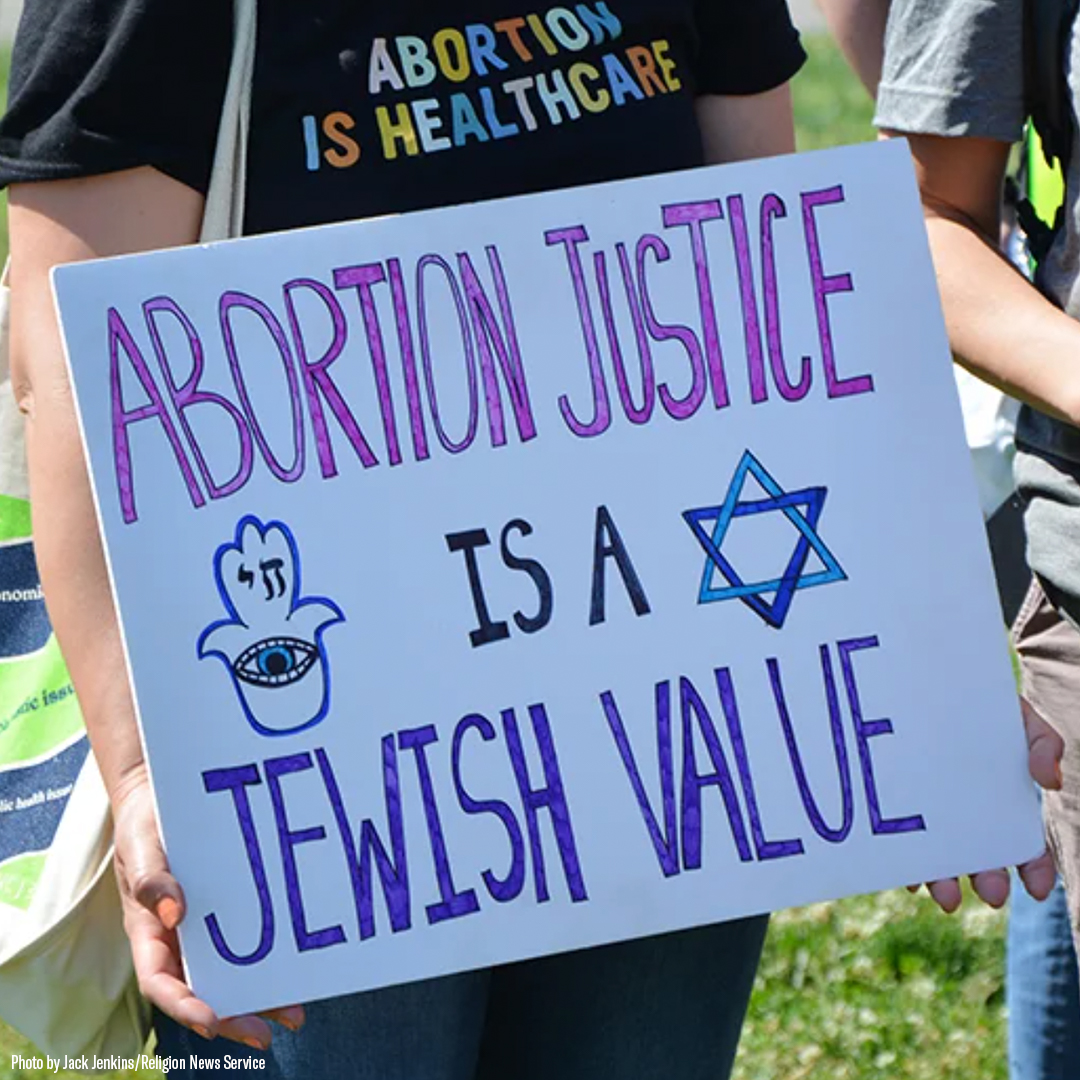
Islam does not believe that the fetus is ensouled at the moment of conception either, and some Muslim scholars take the position that the fetus does not possess a soul until 120 days after conception. Muslim scholars indicate that within 40 days of conception it is proper and appropriate to seek an abortion. Once the fetus reaches 40 days after conception, conservative Muslim scholars believe that an abortion can still be obtained if there is a pressing need that justifies it in the eyes of Islamic law.
For most Pagans, who comprise many spiritual belief systems, creation and life giving are seen as feminine acts. Because of this, Pagans emphasize the importance of women being free and autonomous. Most Pagans therefore demand, as part of their religious and spiritual tradition, that women be allowed to have control over their bodies, free from interference from others.
Unitarian Universalists have long supported reproductive justice. Being denied the ability to obtain an abortion when a Unitarian Universalist believes an abortion is necessary breaks the covenant that they have as Unitarian Universalists to honor their own inherent worth and dignity.
In short, Indiana’s abortion ban will substantially burden the exercise of religion by many Hoosiers who, under the new law, would be prevented from obtaining abortions in conflict with their sincere religious beliefs.
**December 2, 2022 update: A judge has blocked enforcement of the Indiana abortion ban, on the grounds of religious freedom. This is the second time the ban has been blocked.
Meet the Plaintiffs
Meet the five Hoosier women we're suing on behalf of to stop Indiana's abortion ban for violating religious freedom.

